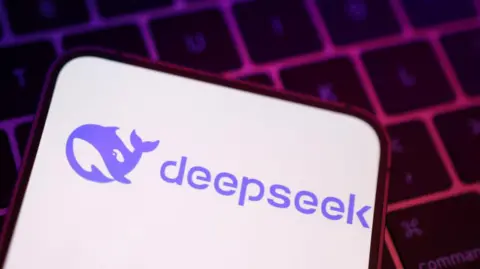
DeepSeek, a Chinese AI chatbot app launched last week, has caused a stir in the US markets and raised questions about the future of America's AI leadership.
DeepSeek looks and acts like other chatbots, though it tends to be quite talkative.
Similar to OpenAI's ChatGPT or Google's Gemini, you open the app (or website) and ask it questions on any topic, and it tries to provide a response.
It gives lengthy answers and avoids expressing opinions, no matter how directly you ask for one.
The chatbot often starts its response by saying the topic is "highly subjective," whether it's about politics (is Donald Trump a good US president?) or soft drinks (which is tastier, Pepsi or Coke?).
It won't even say if it's better than OpenAI's AI assistant ChatGPT, but it does compare the pros and cons of both—ChatGPT does the same and even uses similar language.
DeepSeek states it was trained on data up to October 2023, and while the app seems to access current information like today's date, the website version does not.
This is similar to earlier versions of ChatGPT and is likely an attempt to prevent the chatbot from spreading misinformation found online in real time.
It can respond quickly, but it's currently struggling with the high number of users trying it out since it went viral.
However, there's one area where it differs from its US rival—DeepSeek censors itself on topics banned in China. Sometimes it starts to answer, but then the response disappears and is replaced with "let's talk about something else."
One clearly taboo topic is the 1989 Tiananmen Square protests, which ended with 200 civilians killed by the military, according to the Chinese government—other estimates range from hundreds to thousands.
DeepSeek won't answer questions about this event or discuss what happened in China on that day.
In contrast, US-developed ChatGPT does not hold back when answering questions about Tiananmen Square.
Kayla Blomquist, a researcher at the Oxford Internet Institute and director of the Oxford China Policy Lab, says that "relatively speaking," the Chinese government has been "hands-off" with the app.
"I would say there's a shift, as we've seen an announcement of huge investment from the central government just in the last week—so that is probably going to signal a change moving forward."
